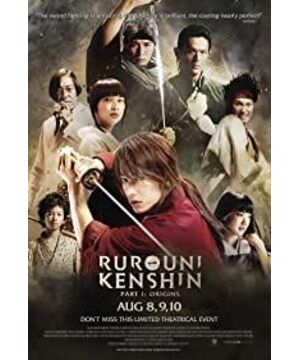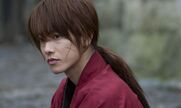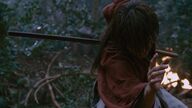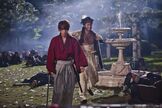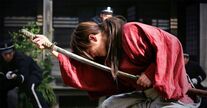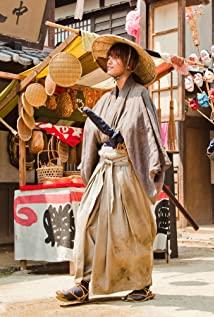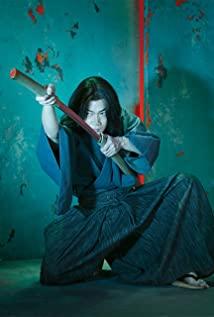A good place to talk about first. In general, the film was made very hard and shot very hard, and there were no scenes that could not be watched because of scribbles. The most amazing part of the movie is the restoration of the fighting scenes and the action of Jianxin Feitian Yujianliu. It is worthy of the emotional scenes that appeared in the eyes of everyone in the fighting juvenile comics. In addition, the theme of the movie does not deviate from the original at all in the general direction. Compared with the remake of the Kyoto chapter a few days ago, it is not easy to do this in this age when everyone likes to talk about themselves.
Tucao should be about details, but it's often a MAKE OR BREAK drama. For example, in the decisive battle with Blade Guard, why did Kenshin use the double dragon flash and the scabbard is the key to victory. The movie did not explain it in the fog at all. Through the inner activities of Blade Guard or Kenshin, or the comments of passers-by, I would briefly explain that it should be Not difficult, right? The movie has many adaptations of the plot development of the story, and most of these adaptations deviate from the original book make me feel inexplicable: if it is not for the sake of being able to tell the story better for the audience who have not seen the original book in the time of a movie, So why edit it?
It would be excusable if the long-length rendering of Kanryu's perverted and cruel acts was to establish this character as the ultimate boss, but later the revolving cannon was reproduced, but the four Edo detectives' defections and sacrifices were omitted. The most tragic and moving part in Guan Liu chapter makes me feel only a pity, the sacrifice of the flesh out of the belief in protection and the ultimate victory over the lethal high-tech weapons exchanged for money is the essence of this story. And the transfer of Waiyin and Xuhai Fanshen (not Dalmatians, wearing strange Western priest costumes) from Renzhuan chapter to Guanliu to act as scumbags may just mean that the crew has no intention of making a sequel? The shyness of wearing the mask half-lifted and wearing this half-covered pipa while warning Gao Hehui next to the well made me misunderstand whether there would be blue purple behind the mask, and I was overjoyed. Xu Haifan's priest costume also made me wonder if this person could be Master Fan Anci International, and he was equally happy.
Not to mention that Youpeng in Shanxian County has become a vulgar politician. And watching Kenshin for so many years, Saito-san has always been the love in his heart. The timid and anxious self is doing the work of taking on other people's life and death day and night, which is largely influenced by Saito-san's life beliefs. The live-action version of Saito-san left me resentful from beginning to end. Of course, due to the limitations of the script, Saito-san, who still insisted on personal justice in the Meiji era, lost his energy and became a good man who changed his evil spirits and returned to positive, disgusting and good. And if Uncle Eguchi doesn't play the role of a heavy and down-to-earth man, the playfulness of the upper body will make this mediocrity a new level. To be honest, if Saito-san continues to film the Kyoto chapter in such a lackluster appearance, it is not worth looking forward to.
It's not that the little brother who talks about Jianxin can't bear it, because he feels that he has really worked hard. But Jian Xin-sang, what's the matter with you covering your eyes with bangs and making eye contact so reluctantly? Is this a redemption story about people with social anxiety disorder discovering their dark inner self? Although Kenshin in his memory has a strong sense of guilt and is often confused, but he behaves in an upright and humane manner. How could it be possible to look at people like this, maybe he will suddenly become murderous, so he looks overly worried and anxious? And Jianxin's inner struggle from "Jianxin" to "Dao Zhai" during the battle and the corresponding changes in expression and body language are also not obvious. Also, in order to prevent Kenshin from killing again and breaking his own heart, Kenshin immediately ran to Kaoru's side. It is also common sense in the original book. In the movie, Kenshin was completely unmoved and reluctantly looked at the corpse of Banwei for a long time. , Leaving Kaoru, who is tied up with five flowers, to continue nibbling mud, what an unreasonable setting.
In the end, the soundtrack is too weak, not to mention the reminiscence chapter, even the TV version has unforgettable melodies such as DEPARTURE and Feitian Yujianliu, and the live-action version is really insufficient in comparison.
View more about Rurouni Kenshin Part I: Origins reviews


